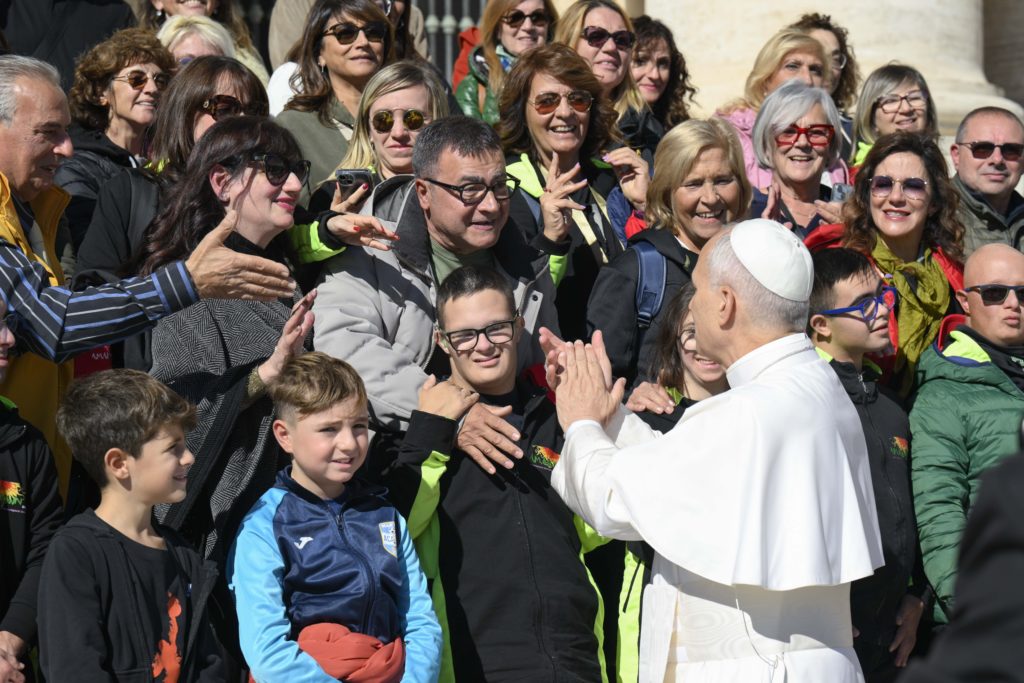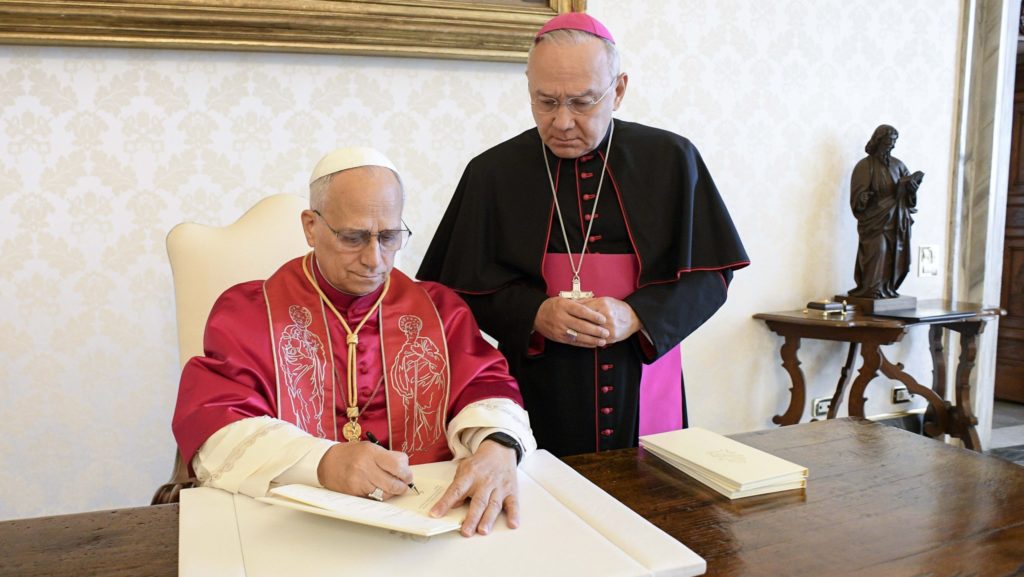The Jubilee Year requires making a choice: serving God and justice or money and inequity, Pope Leo XIV said, marking the Jubilee of Migrants and the Jubilee of the Missions.
"We pray to be a church that does not serve money or itself, but the kingdom of God and his justice," he said during a special audience in St. Peter's Square Oct. 4, the feast of St. Francis of Assisi.
It was the same day that the pope also signed his first apostolic exhortation, "Dilexi Te" ("I Have Loved You"), which will be released Oct. 9.
The document is expected to focus on poverty and the poor. Vatican Media footage of the pope signing the text in the library of the Apostolic Palace showed the first page of the Table of Contents in Italian with chapters dedicated to St. Francis of Assisi, "The cry of the poor," "Ideological prejudices," "God chooses the poor," "Jesus, the poor Messiah," "A church for the poor," "The true riches of the church" and more.
St. Francis was known for his life of radical simplicity and poverty, seeking to imitate Christ and be detached from material possessions and earthly glory to better love and serve God.
Pope Leo continued the theme of poverty in his catechesis during the Oct. 4 Jubilee audience, reflecting on St. Luke's account (16:13-14) of a group of Pharisees who loved money and sneered at Jesus' counsel to be completely dependent on God.

The Gospel passage speaks about making the choice to serve God or to serve money, Pope Leo said in English.
"When we allow material possessions to rule over us, we can fall into spiritual sadness," he said. "When we choose God, however, we choose hope and a life of forgiveness and mercy."
While the Holy Year dedicated to hope is a time for seeking forgiveness and mercy "so that everything can begin anew," he said in his main address in Italian, "the Jubilee also opens up the hope of a different distribution of wealth, the possibility that the earth belongs to everyone, because this is not the case right now."
"During this year, we must choose whom to serve, justice or injustice, God or money," he said.
"To hope is to choose, because those who do not choose are driven to despair," he said, and "the world changes if we change."
"One of the most common consequences of spiritual sadness, or sloth, is not choosing anything," Pope Leo said. "Those who experience this are overcome by an inner laziness that is worse than death."
Among those who made a courageous choice in life were St. Francis and St. Clare of Assisi, he said.
Even though Oct. 4 is the feast day of St. Francis, it was also important to speak about St. Clare because they both are "models of those who understood the Gospel and chose a life of poverty as Jesus did," he said in English.
"Their choice continues to inspire many to remember that the earth belongs to everyone," he said, inviting people to pray "to be a church that serves God and the poor and opens the door of hope to the world."
"Clare understood what the Gospel asks of us," the pope said in Italian. "But even in a city that considers itself Christian, taking the Gospel seriously can seem revolutionary."
"Then, as now, a choice must be made!" he said.
"Jesus says: you cannot serve two masters," Pope Leo said, and the church remains "young and attracts young people" when it follows the right master.
"Clare made her choice, and this gives us great hope," he said, because she has inspired vocational choices throughout the world for centuries.
She also "reminds us that young people like the Gospel," he said. "Young people like people who have made a choice and bear the consequences of their choices."
"This makes others want to choose" in a kind of "holy imitation" where "one does not become a 'photocopy,'" he said, referring to a maxim by St. Carlo Acutis, who also found inspiration in Assisi's saints, "but each person -- when choosing the Gospel -- chooses himself. He loses himself and finds himself."
"Let us pray, then, for young people; and let us pray that we may be a church that does not serve money or itself, but the kingdom of God and his justice," he said. "A church that, like St. Clare, has the courage to live differently in the city. This gives hope!"

